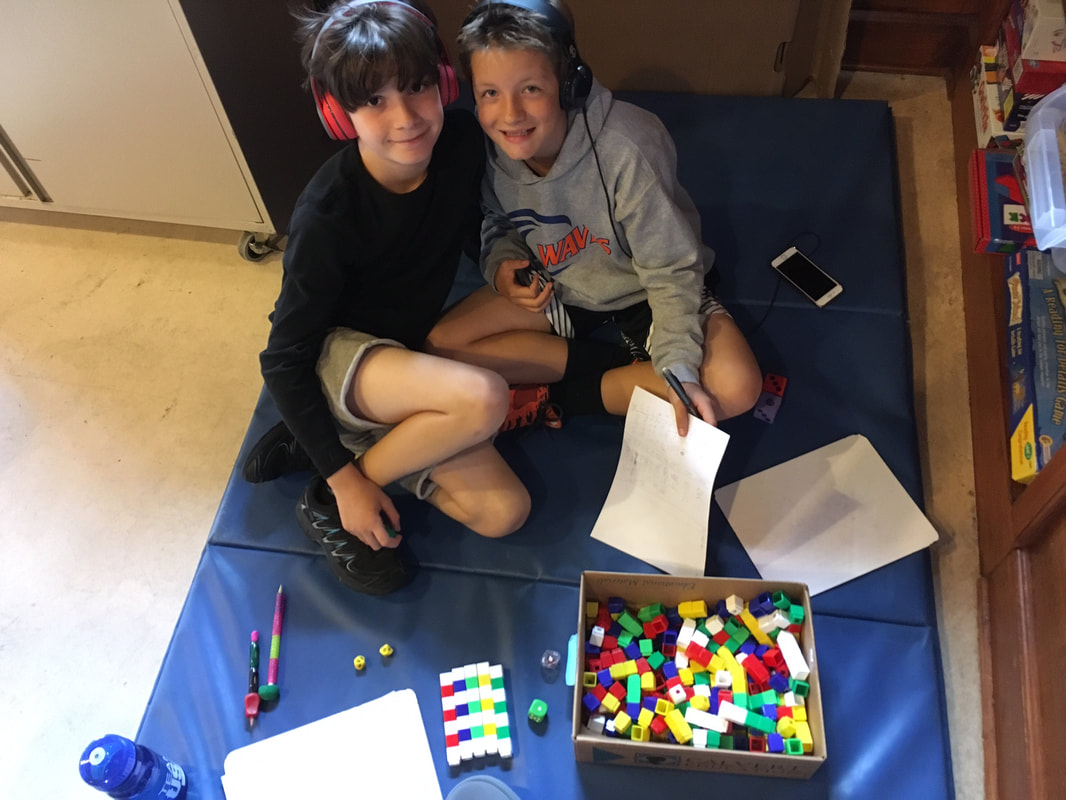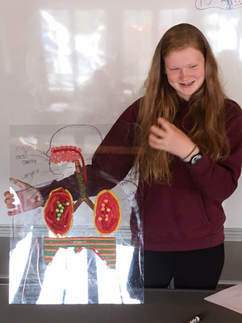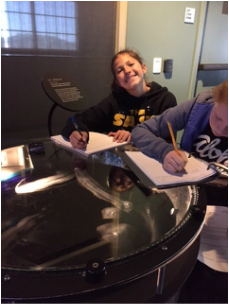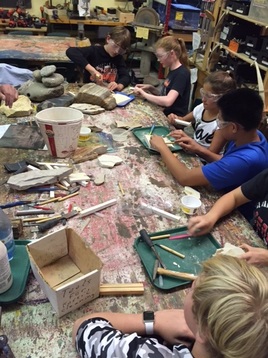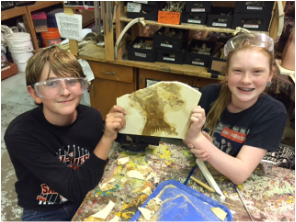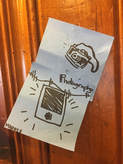"Tell me and I forget.
Teach me and I remember.
Involve me and I learn." - Benjamin Franklin
How does My City School maintain its high rigor and academic standards (that go beyond common core) while helping students become successful learners?
We moved beyond the traditional education model by redefining the whole child and providing an individualized approach in a group setting. My City School’s STEAM curriculum has been developed over the last 11 years specifically to serve students with learning differences. In this program we:
- Identify and remove roadblocks in learning
- Offer micro scaffolding to access grade-level material
- Address foundational gaps for grade-level content; with customized curriculum for strength subjects
- Offer small groups and provide moments of 1:1 support for Reading, Writing, and Math
- Provide a kinesthetic, project-based program learning
- Have an integrated curriculum with embedded executive function and SEL classes
- Provide individualized learning plans based on continuous tracking of student progress
- Offer STEAM classes, PE, and outdoor education
- Include community service projects
- Offer high school transition support
- Support families with individual summer learning plans
- Offer on-site remediation and tutoring
These approaches, combined with our eco-steward project-based learning, have proved what we knew all along--kids with learning differences can outperform expectations, and thrive in Gen Ed and accelerated programs.
A critical piece to our success is partnering with parents for summer achievement in our Bridge Program.
Our Bridge Program provides remediation and intensive foundational skill-building sessions for students in grades 4 – 8 to help students close academic gaps in writing, reading, math, visual processing, critical thinking skills, dysgraphia, dyscalculia, working memory, executive functioning, and students with ADHD. This summer, we are opening our summer Bridge Program to students outside the My City School community.
Reading, Writing & Math
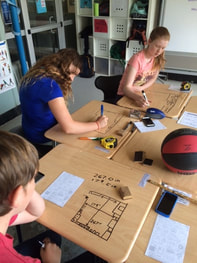
Our teachers ensure each student is met at their level for the fundamentals of reading, writing and math. We incorporate a multi-sensory, hands-on approach utilizing foundational methodologies from Orton Gillingham, The Barton Method, and strategies and techniques from The Dyslexia Empowerment Plan by Ben Foss. Slingerland and Lindamood Bell techniques are utilized for select students based on their learning needs.
My City School implements Educational Kinesiology with Brain Gym fundamentals, bilateral integration work, and other programs such as Bal- A - Vis -X and Yoga to increase focus, retention, and lower stress. Assisted technology is incorporated for pre-teaching as well as practice.
My City School implements Educational Kinesiology with Brain Gym fundamentals, bilateral integration work, and other programs such as Bal- A - Vis -X and Yoga to increase focus, retention, and lower stress. Assisted technology is incorporated for pre-teaching as well as practice.
Project Based Science and History
|
My City School delivers History and Science through interactive content, technology and project based classroom activities while leveraging bay area resources. Additionally, Math and Language arts are integrated into these subjects to strengthen these fundamentals.
My City School's experiential program coordinator ensures the integration of all activities and curriculum. Classroom studies are experienced and reinforced with Bay Area resources including: |
Science
My City School maintains its commitment to science and the Next Generation Science Standards (NGSS). Science is delivered through a familiar and effective middle school approach: a combination of hands on exploration, design thinking, respectful discussions to deepen critical thinking, analysis, and the collection and interpretation of data. Students are focused primarily on engagement with the NGSS scientific processes. MCS does not focus on memorization of scientific facts or rely on testing to evaluate a student’s performance, but rather looks at a student’s engagement, participation, interest and ability to learn about the process for evaluation.
Some Science themes include:
Social Studies
Students focus on a broad study of the development of America. MCS exposes students to history through a combination of tools that help them understand, process and retain historical narratives. These include videos, discussions, research, and textbook reading paired with annotation skills, the creation of timelines and connect to their personal history to the building of America. Additionally students visit local museums and cultural exhibits to deepen their understanding of specific topics.
Year One History Topics include:
Year Two History Topics include:
Year Three History Topics Include:
My City School maintains its commitment to science and the Next Generation Science Standards (NGSS). Science is delivered through a familiar and effective middle school approach: a combination of hands on exploration, design thinking, respectful discussions to deepen critical thinking, analysis, and the collection and interpretation of data. Students are focused primarily on engagement with the NGSS scientific processes. MCS does not focus on memorization of scientific facts or rely on testing to evaluate a student’s performance, but rather looks at a student’s engagement, participation, interest and ability to learn about the process for evaluation.
Some Science themes include:
- Growth development and reproduction of organisms
- Natural selection and adaptation
- Space Systems and the history of earth
- Forces and interactions
- Waves and electromagnetic radiation
- Humans and their impact on the earth
- Engineering design and long-term projects
Social Studies
Students focus on a broad study of the development of America. MCS exposes students to history through a combination of tools that help them understand, process and retain historical narratives. These include videos, discussions, research, and textbook reading paired with annotation skills, the creation of timelines and connect to their personal history to the building of America. Additionally students visit local museums and cultural exhibits to deepen their understanding of specific topics.
Year One History Topics include:
- Geography and Personal History
- Mesopotamia
- Egypt and Kush
- Ancient Hebrews
- Ancient China
- Ancient India
- Ancient Greece
- Ancient Rome
Year Two History Topics include:
- World Geography; Personal History; Rise and decline of the Roman Empire; Begin Islam in the middle Ages
- Islam in the Middle ages and begin China in the Middle Ages
- China in the Middle Ages and Medieval Africa (Ghana and Mali)
- Medieval Japan
- Medieval Europe
- Mesoamerica and Andean Civilizations
- The Renaissance
- The reformations
- The Scientific revolution
- Age of Exploration, the enlightenment, the age of reason
Year Three History Topics Include:
- Development of American constitutional democracy
- U.S. Constitution
- American political system
- People of the new nation
- U.S. foreign policy in the early Republic
- American people in the South and West from 1800 to mid 1800's
- Declaration of Independence
- Civil War and the Reconstruction
- Industrial Revolution
Physical Education
Physical Education is a fun active living curriculum that provides exposure to physical activities that support a lifelong social community. This encompasses kickboxing, capoeira, basketball, yoga, rock climbing, hiking, and sometimes running to catch the bus!
Drama
Students learn acting skills from scripted work to improvisation, all of which are proven to encourage life skills such as self-esteem, team building, creativity and public speaking. These activities help strengthen social skill and visual spacial by giving students a fun project that also requires focus. Our Drama class also studies Shakespeare simultaneously with our Literature class, and produces student performance which we perform at our end of year graduation!
My City School SPARKS
Students at My City School are immersed in subjects that ‘SPARKS’ their interest. Students conduct research, develop concepts, practice thought mapping, and engage with peers and the community advisors to present their Spark project as a presentation at the end of the project cycle. The Spark Project is project-based learning that demands supported planning, builds organization skills, increases reading & writing, and develops each student’s public speaking skills.
My City School NEIGHBORS
Service programs help students understand their capacity to contribute to the world around them. Activities include:

